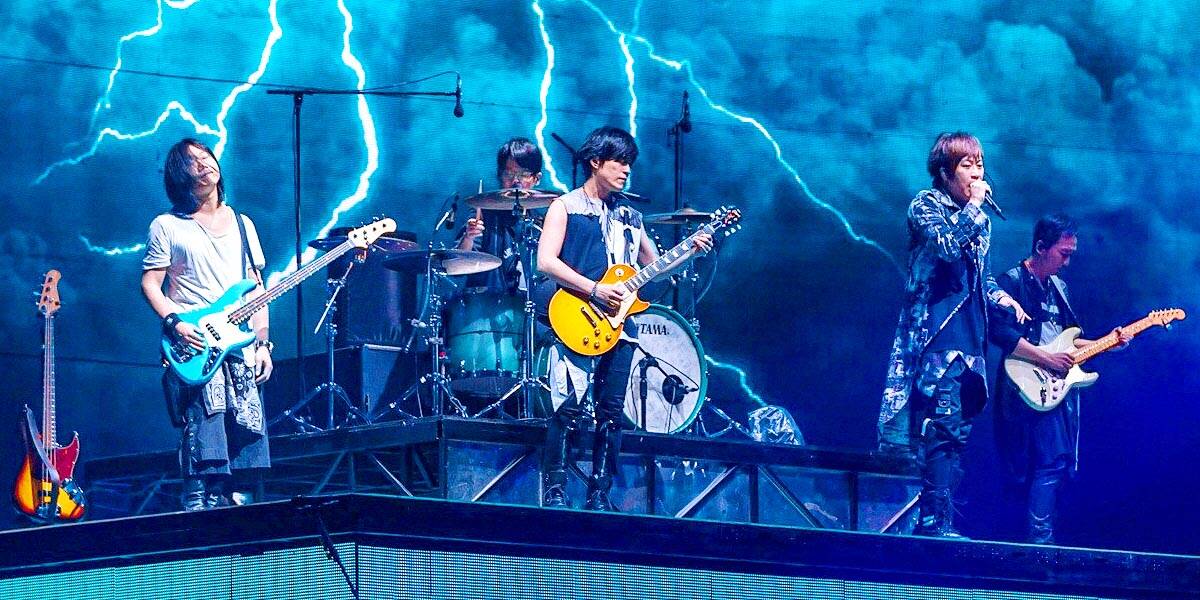對話 Dialogue
清清:華華,這個禮拜六我要去爬山,你要不要一起去?
Qīngqing: Huáhua, zhège lǐbài liù wǒ yào qù páshān, nǐ yào búyào yìqǐ qù?

Photo courtesy of Wikimedia Commons / 照片:Wikimedia Commons提供
華華:謝謝你的邀請,但我要去高雄聽五月天的演唱會!耶!
Huáhua: Xièxiè nǐ de yāoqǐng, dàn wǒ yào qù Gāoxióng tīng Wǔyuètiān de yǎnchàng huì! Ye!
清清:你搶到票啦?也太厲害!五迷那麼多,票超難買的。還要到高雄,好遠欸!
Qīngqing: Nǐ qiǎng dào piào la? Yě tài lìhài! Wǔmí nàme duō, piào chāo nán mǎi de. Háiyào dào Gāoxióng, hǎo yuǎn ei!
華華:為了五月天,拼了命也要搶到票,高雄也還好啦!我週五就會先下去了,坐高鐵很方便。而且今年是25週年的巡迴演唱會,特別有意義呢!
Huáhua: Wèile Wǔyuètiān, pīnle mìng yě yào qiǎngdào piào, Gāoxióng yě háihǎo la! Wǒ zhōuwǔ jiù huì xiān xiàqù le, zuò gāotiě hěn fāngbiàn. Érqiě jīnnián shì èrshíwǔ zhōu nián de xúnhuí yǎnchàng huì, tèbié yǒu yìyì ne!
清清:你真是他們的死忠粉絲。那你最喜歡五月天的哪首歌呢?
Qīngqing: Nǐ zhēnshi tāmen de sǐzhōng fěnsī. Nà nǐ zuì xǐhuān Wǔyuètiān de nǎ shǒu gē ne?
華華:太多了!他們的歌首首都動聽,感覺有好多好多故事喔!真是百聽不厭。
Huáhua: Tài duō le! Tāmen de gē shǒu shǒu dōu dòngtīng, gǎnjué yǒu hǎoduō hǎoduō gùshì ō! Zhēnshi bǎitīng búyàn.
清清:要不然怎麼能到現在都不退流行呢?世界上有華人的地方,就都聽得到他們的歌。
Qīngqing: Yàobùrán zěnme néng dào xiànzài dōu bú tuì liúxíng ne? Shìjiè shàng yǒu Huárén de dìfāng, jiù dōu tīngdedào tāmen de gē.
華華:沒錯,等我週日回來,再告訴你演唱會的情形囉!
Huáhua: Méicuò, děng wǒ zhōurì huílái, zài gàosu nǐ yǎnchàng huì de qíngxíng luō!
翻譯 Translation
Qingqing: Huahua, this Saturday I’m going mountain climbing. Do you want to come along?
Huahua: Thank you for the invitation, but I’m going to Kaohsiung to attend Mayday’s concert! Yeah!
Qingqing: Did you manage to get tickets? That’s impressive! With so many Mayday fans, tickets are really hard to come by. Going all the way to Kaohsiung, it’s quite far, huh?
Huahua: For Mayday, I’ll do whatever it takes to get tickets. Kaohsiung is not too bad! I’ll head there on Friday; the high-speed rail is very convenient. Plus, this year is the 25th anniversary concert tour, which makes it extra meaningful!
Qingqing: You’re truly a die-hard fan of theirs. So, which Mayday song is your favorite?
Huahua: There are too many to choose from! Every one of their songs is catchy, and they seem to tell so many stories! I never get tired of listening to them.
Qingqing: How else could they have stayed popular until now? Wherever there are Chinese, you can hear their songs.
Huahua: Absolutely, I’ll tell you all about the concert when I come back on Sunday!
生詞 Vocabulary
1. 演唱會 (yǎnchàng huì) concert
2. 邀請 (yāoqǐng) invite, invitation
3. 搶票 (qiǎngpiào) snap up the tickets
4. 五迷 (Wǔmí) Mayday’s fans
5. 巡迴 (xúnhuí) tour
6. 死忠 (sǐzhōng) loyal fan
7. 粉絲 (fěnsī) [slang] fans
8. 動聽 (dòngtīng) melodious, pleasing to the ear
教材音檔 Audio Files
國立清華大學華語中心提供
By National Tsing Hua University Chinese Language Center:

Like people in many other countries, Taiwanese are fond of delicious fried snacks. For example, Spain is known for its churros, and in Taiwan there is a traditional fried dessert made of sticky rice called beh teung guai. The snack consists of sticky rice flour that is mixed with water, kneaded into a dough and shaped into small pieces. Once fried, the sticky rice balls are coated in crushed peanuts and sugar mixture. 世界上有許多國家愛吃炸甜點,台灣也不例外。舉例來說,西班牙有吉拿棒,台灣人則有油炸糯米的點心──白糖粿。作法先將糯米粉和水混合揉成糰,再捏成小塊,炸好後裹上花生糖粉。 knead (v.) 揉(麵糰、黏土),捏;捏製;揉捏形成 Beh teung guai is a traditional snack that has been enjoyed by many senior citizens since

WHEN ARE THE OLYMPIC AND PARALYMPIC GAMES? The Paris 2024 Olympics will run from Friday to Aug. 11, while the Paris 2024 Paralympics will be held from Aug. 28-Sept. 8. WHERE WILL THE GAMES TAKE PLACE? In September 2017, the International Olympic Committee (IOC) awarded Paris the 2024 Games when its only remaining rival, Los Angeles, agreed to wait another four years to be the host city. Paris has hosted two Olympics and will stage the event 100 years after its last Games in 1924. The Games will be staged in 35 venues across Paris, Ile-de-France, on both mainland France and overseas. Some notable venues

A: The 2024 Paris Olympics is set to open tomorrow (Saturday Taiwan time), and will run until Aug. 11. B: How many Taiwanese athletes will compete in the Olympics? A: About 60 Taiwanese athletes will participate in 16 sports. B: I’ve heard some Olympic gold medalists, such as weightlifter Kuo Hsing-chun, and badminton duo Lee Yang and Wang Chi-lin, will compete in the Olympics again. A: Asian tennis star Hsieh Su-wei, who is the World No. 1 in women’s doubles, is also on the Taiwan team. Let’s give our support to the Taiwanese players. A: 巴黎奧運自7月26日(台灣時間27日),至8月11日要登場啦。 B: 台灣有多少選手參賽? A: 台灣有60名選手參賽,將參加16項運動種類。 B: 這次奧運金牌舉重名將郭婞淳、羽球男雙李洋/王齊麟都會參賽。 A:

You might have seen athletes gracefully bending and leaping in rhythm with melodies. This is “rhythmic gymnastics,” a sport often mistaken for artistic gymnastics. However, the two are distinct in focus and presentation. Artistic gymnastics focuses on strength, flexibility, and balance, with athletes performing solo on various equipment. They are scored based on the difficulty of their movements, their execution of certain skills on each apparatus, and their ability to combine multiple skills into different movements. Rhythmic gymnastics, on the other hand, emphasizes style and presentation, with athletes often performing in teams. Moving in harmony with music, they use